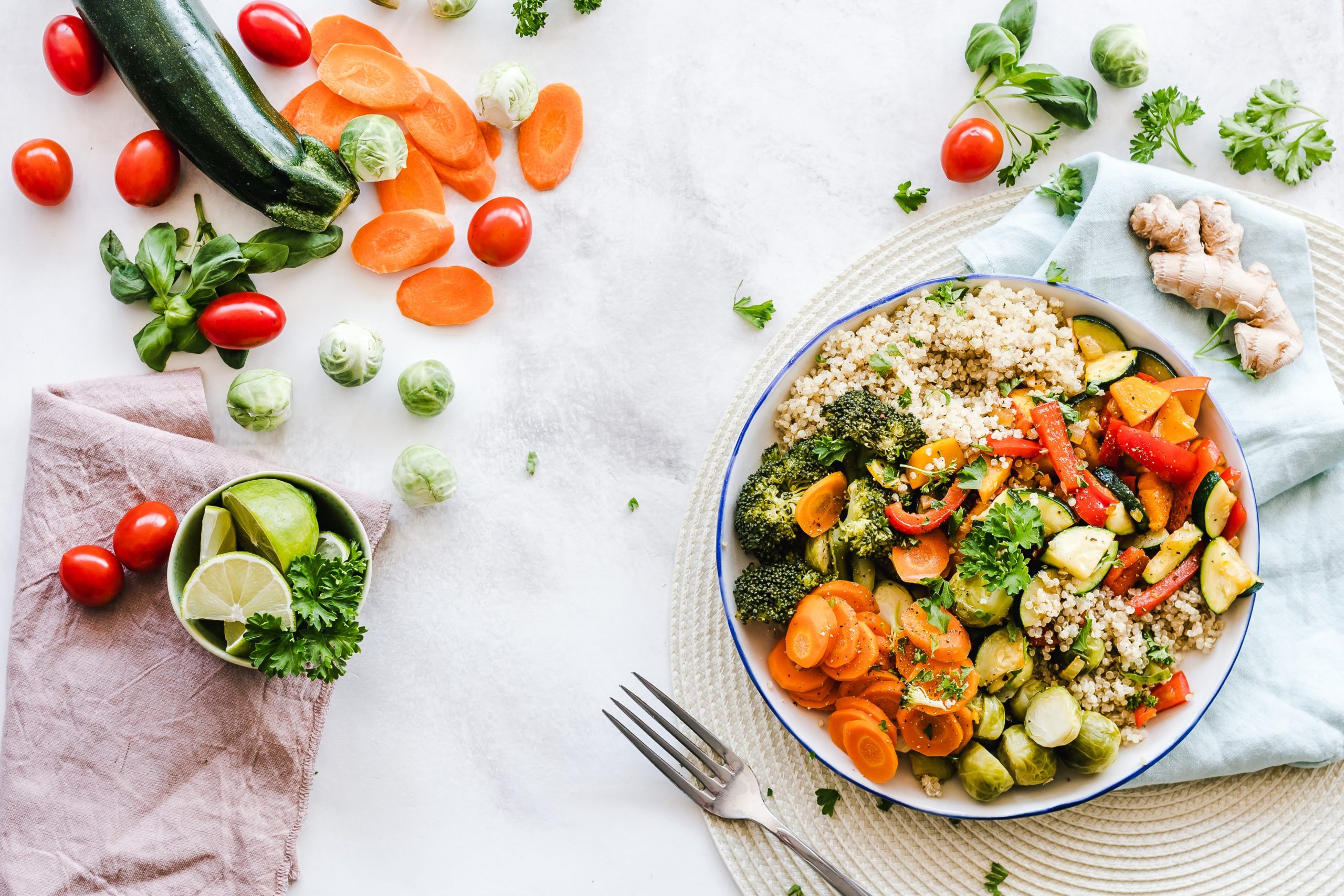Foods for Bone Health

Bone is a living tissue that constantly breaks down and replaces itself with new bone to stay strong. This process changes as we get older, starting at around 30 years of age when most people reach their peak bone mass. From then on, bone tends to break down faster than it can rebuild and your bone health deteriorates.
Osteoporosis is a disease where low bone mass and the deterioration of bone tissue leads to weak bones and an increased risk of fracture. Unfortunately, bone deterioration can occur “silently” for many years without any symptoms and by the time the affected bones break or fracture, the disease is generally advanced. According to the Osteoporosis Foundation of Canada, one in three women and one in five men will experience a bone fracture caused by osteoporosis and around two million Canadians are affected by this disease. In fact, fractures from osteoporosis are more common than breast cancer, stroke and heart attacks combined.
Are you at Risk?
Osteoporosis affects men and women of all races but there are factors that may put you at a higher risk. This includes some conditions like eating disorders, kidney failure, inflammatory bowel disease and hormonal imbalances. Other unavoidable and preventable risk factors include:
Unavoidable Risk
- Age: The risk increases as people age
- Gender: More common in postmenopausal women
- Ethnicity: Caucasian or Asian people are at a higher risk
- Body Frame: People with a low body mass index (BMI) typically have less bone mass
- Family history: A family member with osteoporosis or hip fractures as a senior
- Previous injury: Any past fractures increase your risk of a future fracture
Diet and Lifestyle
- Poor nutrition
- Smoking
- Excessive alcohol, sodium or caffeine
- Physical inactivity
NUTRITION
While gender, genetics, lifestyle choices and physical activity do play a large role in your risk levels, diet can literally make or break bone health. Nutrition, especially calcium intake, is critical to preventing osteoporosis and encouraging good bone health at every stage of life. Whether you’re trying to maintain strong and healthy bones to prevent osteoporosis, or slow bone loss and the risk of fracture after an osteoporosis diagnosis, here’s a list of foods that are high in calcium, vitamin D and protein, all of which are important for bone health:
Calcium
Like many nutrients, calcium is absorbed less effectively as we age so older adults need to incorporate more calcium sources into their diet to slow bone loss. Your doctor can give you specific recommendations based on your own risk factors, but generally adults between 19 and 50-years-old should get 1000 mg of calcium per day. After 50-years-old, this total usually goes up to 1200 mg.
To help you meet your daily needs, good food sources of calcium include:
- Dairy products—milk, cheese and yogurt
- Nuts and seeds—almonds, sunflower seeds, pistachios and brazil nuts
- Green leafy vegetables—broccoli, kale, collard greens, bok choy
- Canned fish—salmon or sardines with bones
- Dried fruit—figs, prunes and apricots
- Legumes—tofu, soybeans, lentils and chickpeas
- Fortified foods and drinks—some breakfast cereals, orange juice and plant milks (be sure to read labels)
If you are unable to get enough calcium through your diet, calcium supplements may be helpful. Talk to your doctor for specific recommendations as there can be side effects.
Vitamin D
Along with calcium, vitamin D is essential for your bone health. Vitamin D helps build stronger bones by supporting the body’s ability to absorb calcium and improves muscle function and balance decreasing your likelihood of falls and fractures. Often called the sunshine vitamin, vitamin D can be made in the skin after exposure to ultraviolet (UV) rays during the summer months and is found in some dietary sources including:
- Oily fish like salmon, trout and mackerel
- Egg yolk
- Vitamin D fortified milk, yogurt, tofu, orange juice and margarine
- Nuts including almonds, pistachios and brazil nuts
Because of Canada’s climate, sunscreen use or avoiding the sun to prevent skin cancer, we cannot rely on the sun to get our daily recommended dosage. Osteoporosis Canada recommends a daily vitamin D supplement for all Canadian adults. Speak to a health professional for your specific recommendations.
Protein
Protein is found in every cell of your body including your bones and research has shown that eating protein increases bone density. Protein is in both animal and nonanimal food sources including meat, seafood, eggs, dairy, soy, nuts and legumes. The recommended daily protein intake is at least 0.4 grams per pound (or 0.8-1.0 grams per kilogram) of body weight. For example, if you’re a 180 pound woman, you need about 70 grams of protein per day.
As you age, good bone health helps make sure you can continue to do the things that you love and avoid injury. A bone-healthy lifestyle includes regular physical activity, a balanced diet, and the necessary vitamins and minerals to prevent, delay and reduce bone loss. Talk to your health care provider about your risk factors and to develop a plan to protect your bones.
Reviewed By:
Sara Berdugo, RD
Cali Guttman, RD
You may also like:
